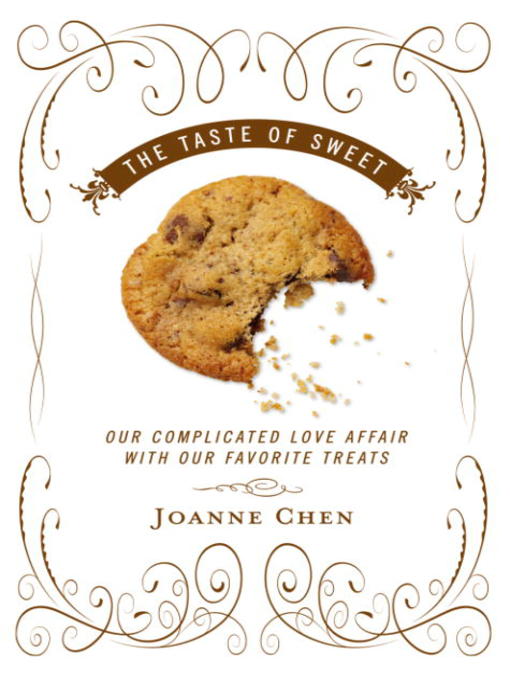
The Taste of Sweet
Our Complicated Love Affair with Our Favorite Treats
کتاب های مرتبط
- اطلاعات
- نقد و بررسی
- دیدگاه کاربران
نقد و بررسی

January 28, 2008
In her thoughtful first book, Chen, a longtime magazine editor and writer, examines the physical, psychological and historical relationship between sweet flavors and humans, especially Americans. She begins by looking at how we taste by examining the human tongue, and taste buds in particular, meeting up with a psychologist whose work strongly suggests that some of us simply taste things differently. But while the tongue just absorbs this information, the stomach and the brain communicate what we like, what we want more of, whether we've had enough or whether one or the other or both wants to override the system for a variety of reasons, including emotional ones, and permit overindulgence. The author follows a technician whose work includes finding and using flavor components such as the “1950s strawberry.” Turning her focus to stateside sweetness in the second half of the book, Chen argues that for a variety of historical and cultural reasons we Americans are uniquely vulnerable to sweetness because of external factors, thus, our uneasy relationship with it. The result is a large industry for and about sugar, another against, yet another for artificial sweeteners and connected others such as those for nutrition, exercise and diet.

March 1, 2008
Chen (senior editor, "Fortune Small Business") attempts in her first book to explain Americans' conflicted relationship with sweets. Particularly noteworthy are her exploration of the question, "Does eating sweets make a person fat?" and a revealing probe into the connections between money, social class, and sugar. Chen devotes an entire chapter to artificial sweeteners, but she fails to mention the whole class of sugar alcohols, such as xylitol and sorbitol, which have become fixtures in breath mints, gum, and other sugar-free sweets. Her conversational tone frequently veers into the realm of personal anecdote. Although she has done research and includes endnotes, the lack of a coherent thesis undermines the text and reduces the chapters to a series of editorials strung together by one broad topic. An optional purchase for public libraries.Rosemarie Lewis, Broward Cty. P.L., Fort Lauderdale, FL
Copyright 2008 Library Journal, LLC Used with permission.

June 1, 2008
Adult/High School-This rollicking survey of desserts is as addictively compelling as the author finds red velvet cake to be. Referencing agricultural history, gastronomic invention, medical research, and social changes, Chen weaves readily between science and art, expertly including readers in her exploration of taste buds, kitchen technology, and up-to-the-moment news about weight and health. Not only is it fun to read about chocolate, sugar, and dueling recipes, but Chen also offers intriguing narrative on the history of candy (the name of which was borrowed by Crusaders from the 11th-century Arabic sweet called "Qandi"); how experiments like the Edible Schoolyard, funded by the Alice Waters Foundation, can instill food literacy in adolescents; and the economics of food shopping that distinguishes gustatory selections made by wealthy and poor Americans. Accessible and focused by turns on such topics as fat, hybrid fruit, and artificial sweeteners, this volume can be dipped into or read in full. It's an excellent choice for teens who have any interest in knowing why candy bars are attractive and for curriculum planners in search of stellar writing to add to courses in science, history, health, or sociology."Francisca Goldsmith, Halifax Public Libraries, Nova Scotia"
Copyright 2008 School Library Journal, LLC Used with permission.

April 1, 2008
Without question, humans crave the comfort of sweetness on the tongue. But, as Chen points out, our hunger for sweets is a mixed blessing at best. Refined sugar has been with us for decades, but its identification as the root of many nutritional dysfunctions has many wondering if they dare take any solace in the pleasure that sugars inimitable presence on the tongue delivers. Chen spends days in laboratories, ferreting out the physiological bases for our appetite for sweets. She delves into the larger question of flavors, aroma, and taste. Chen further forays into subtle areas where desire blends into physical addiction, and she tries to elucidate the issues surrounding the use of specific kinds of sugars, such as fructose, and the growing numbers of noncaloric and artificial sweeteners. Readers will gain a lot of knowledge here, but it may not assuage feelings of guilt at scarfing that second brownie.(Reprinted with permission of Booklist, copyright 2008, American Library Association.)

























دیدگاه کاربران